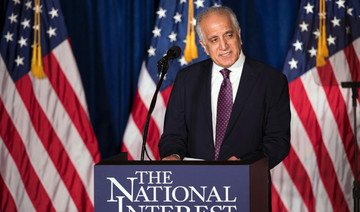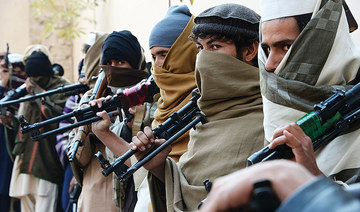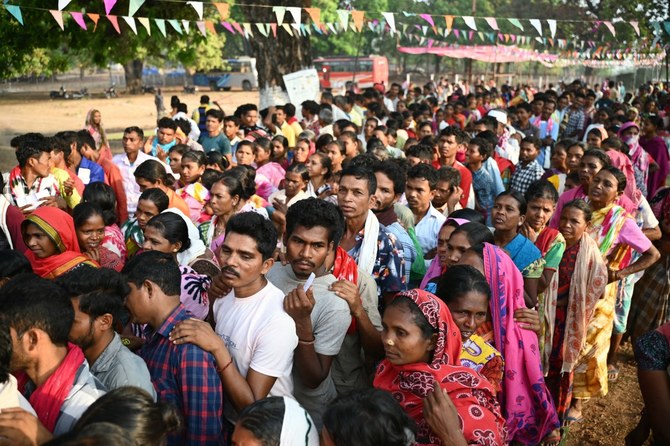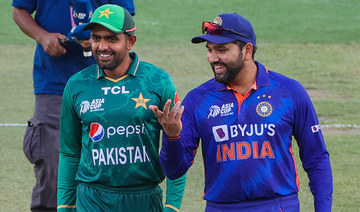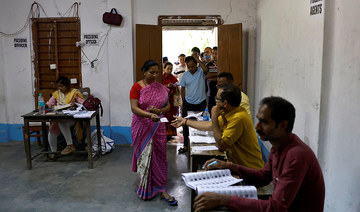KABUL: The Afghan peace process is entering a new stage, according to the US special envoy for reconciliation as he stressed the need for the country’s warring parties to formally meet and start their negotiations.
Talks to end the decades-long conflict in Afghanistan have been foundering as the Taliban refuses to meet Kabul representatives as it says the government is a puppet of the West. US Special Representative for Afghanistan Reconciliation Zalmay Khalilzad says it is essential that the two sides come together.
An ice-breaker in April was canceled by Kabul after disagreements with the host nation Qatar. There is due to be an intra-Afghan meeting in Germany later this month.
Khalilzad, who arrived in Kabul late Sunday, met President Ashfraf Ghani and other politicians after his latest round of talks in Pakistan, Germany and Brussels.
“Good to be back in #Afghanistan. Plan to be here for some time on this trip. Will be consulting widely. Peace talks are entering a new stage and Afghans must be engaged more than ever. #AfghanPeaceProcess,” he tweeted to his 73,000 followers.
“Good meeting w/ Pres @AshrafGhani & his team. Discussed building further intl consensus for #peace. Also regional requirements & implications for peace including recent positive movement in AfPak relations & opportunities peace will provide for regional connectivity &development. As #AfghanPeaceProcess talks continue to progress, we agreed preparation for intra-Afghan negotiations now is essential.”
He briefed Ghani on his European trips and future plans, according to a statement issued by the presidential palace.
“The conversations of President Ghani and Dr. Khalilzad were mostly focused on intra-Afghan dialogue and both sides expressed happiness about the role of Germany in this regard and hoped for the earliest start of the first round of intra-Afghan dialogue,” read the statement. “The two sides hoped that the intra-Afghan talks will begin as soon as possible.”
Last month Germany said it had been talking with the Taliban and the Afghan government in an effort to restart the peace process.
“The current chance for a process toward a more peaceful Afghanistan should not be missed. If the friends of Afghanistan — and Germany is one of them — together can help in this effort, then we should do it,” Reuters reported Berlin’s special representative for Afghanistan and Pakistan Markus Potzel as saying.
“In the end only the Afghans themselves, including the Taliban, can decide upon the future of their country.”
Khalilzad was appointed last summer and has held six rounds of talks with the Taliban, who are fighting to drive out US-led troops.
The focus of his meetings, held without Ghani’s officials, has largely been on the Taliban’s insistence of a complete drawdown of foreign troops in return for a guarantee from the militants that they will not use Afghanistan against any nation or Washington’s interests.
Ghani has been infuriated by the exclusion of government representatives from these meetings. He is standing for re-election, and Afghan politicians and Khalilzad want to hold the polls after a successful outcome of the talks so the Taliban can take part in the vote.
Analyst Fazl Ahmad Orya said Khalilzad’s current trip to Kabul was more important than his previous ones because he had built a consensus in the region and among major foreign powers about the peace process.
“He now wants to lay a foundation of talks among Afghans as his next step and the first major such meeting is scheduled to be held in Germany,” Orya told Arab News.
Politician and former presidential adviser Shahzada Masood said there were too many ambiguities and not enough details about the special envoy’s work.
“Khalilzad has had no progress in his past rounds of meetings with the Taliban and he needs to share and clarify the details of his meetings with the Taliban in order to put an end to the ambiguity about the country’s future.”
He said foreign troop presence and the fate of the country after the peace deal were among the issues that needed addressing.
Khalilzad said on June 6 that the US and NATO would make a shared decision on remaining in Afghanistan or leaving the country.




